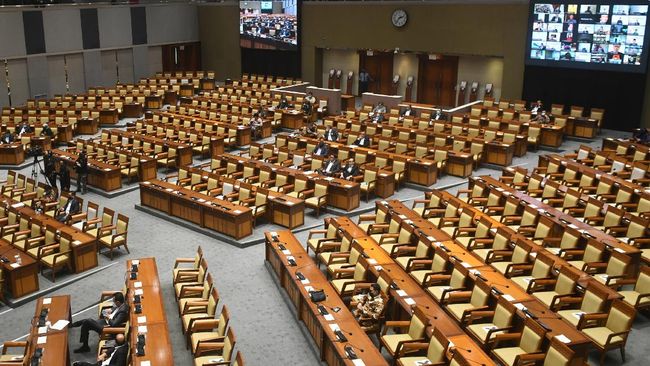 Hearing Chamber in the Indonesian Parliament. (Image Via: CNN Indonesia)
Hearing Chamber in the Indonesian Parliament. (Image Via: CNN Indonesia)
"Ciptaker" Bill Has Been Passed, Leading to Protests
The Omnibus Law which consists of the Job Creation
(Ind.: Cipta Kerja, abb.: Ciptaker) has been passed by the
People’s Representative Council (DPR). The law has been regarded as controversial
and provoked many to protest it. The social media is inundated with posts
unwelcoming the bill, expressing detest to the parliament.
Protest also came from parliament members from two
political parties, namely Partai Keadilan Sejahtera (Prosperous Justice
Party) and Partai Demokrat (Democratic Party). They voted against the
bill and decided to walk out of the hearing chamber in dissenting response to
the passing of the bill.
Most protesters come from the working class. In many
parts of Indonesia, the labour forces have been amplifying their voices,
reacting against the Omnibus Law. So, what makes this bill controversial?
There are several highlighted articles deemed to
affect the working class and the environment.
Article 88 of the Environmental Protection and
Management Bill has been revised. The Article states that every individual or
business who uses B3 or produces B3 type of waste must be held accountable for
the environmental debris they cause.
In the Ciptaker version, the part “without having to
be proven guilty for doing so” is removed. The Indonesian Forum of Environment
argues that this removal would allow corporations to abandon their environmental-ethical
responsibilities.
The second problematic part of the bill is the
revision of a part in the previous bill stating that all business owners must
secured Analysis on Environmental Impacts (AMDAL), issued by authorities. In
the revised version, AMDAL requirement is annulled.
Regulation about severance pay is also disputed. In
the previous bill, severance pay was tantamount to 32 times of the monthly
salary of the eliminated employee. But in the new bill, it has been reduced to
25 times.
Source: https://bit.ly/2I29UB0
 English
English Japan
Japan
